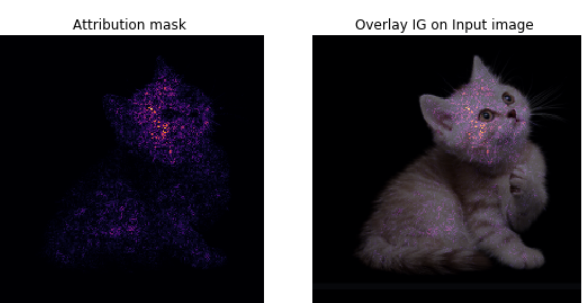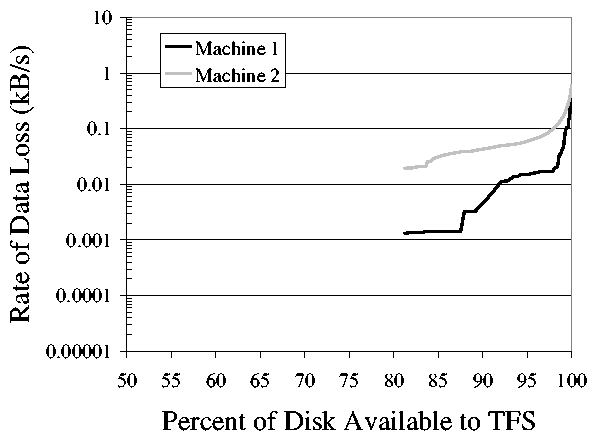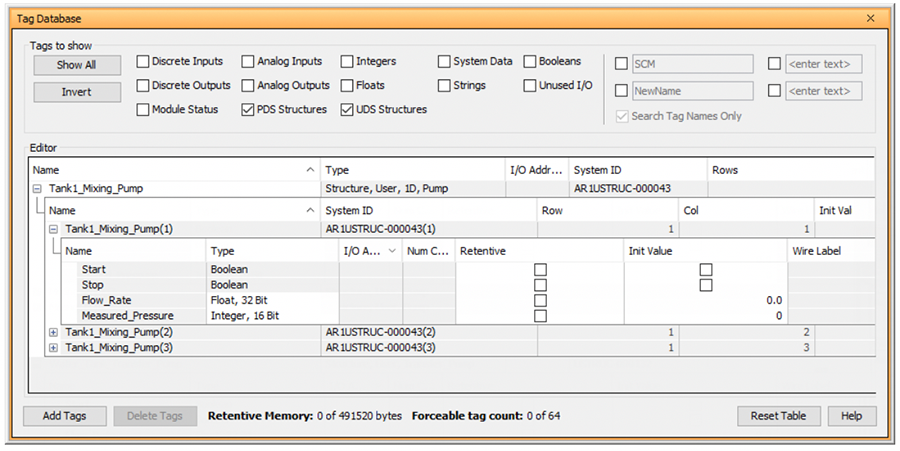41 tf dataset get labels
tensorflow tutorial begins - dataset: get to know tf.data quickly def train_input_fn( features, labels, batch_size): """An input function for training""" # Converts the input value to a dataset. dataset = tf. data. Dataset. from_tensor_slices ((dict( features), labels)) # Mixed, repeated, batch samples. dataset = dataset. shuffle (1000). repeat (). batch ( batch_size) # Return data set return dataset How to solve Multi-Label Classification Problems in Deep ... - Medium time: 7.8 s (started: 2021-01-06 09:30:04 +00:00) Notice that above, the True (Actual) Labels are encoded with Multi-hot vectors Prepare the data pipeline by setting batch size & buffer size using ...
GitHub - google-research/tf-slim Furthermore, TF-Slim's slim.stack operator allows a caller to repeatedly apply the same operation with different arguments to create a stack or tower of layers. slim.stack also creates a new tf.variable_scope for each operation created. For example, a simple way to create a Multi-Layer Perceptron (MLP):

Tf dataset get labels
How to get the label distribution of a `tf.data.Dataset` efficiently? The naive option is to use something like this: import tensorflow as tf import numpy as np import collections num_classes = 2 num_samples = 10000 data_np = np.random.choice(num_classes, num_samples) y = collections.defaultdict(int) for i in dataset: cls, _ = i y[cls.numpy()] += 1 Multi-label Text Classification with Tensorflow — Vict0rsch Processing the labels. We need to read the one-hot encoded text file and turn it into tensors: def one_hot_multi_label(string_one_hot): # split on ", " and get dense Tensor vals = tf.string_split( [string_one_hot], split_label_token).values # convert to numbers numbs = tf.string_to_number(vals) return tf.cast(numbs, tf.int64) labels_dataset ... Keras tensorflow : Get predictions and their associated ground truth ... I am new to Tensorflow and Keras so the answer is perhaps simple, but I have a batched and prefetched tensorflow dataset (of type tf.data.TFRecordDataset) which consists in images and their label (int type) , and I apply a classification model on it.
Tf dataset get labels. How to use Dataset in TensorFlow - Towards Data Science dataset = tf.data.Dataset.from_tensor_slices (x) We can also pass more than one numpy array, one classic example is when we have a couple of data divided into features and labels features, labels = (np.random.sample ( (100,2)), np.random.sample ( (100,1))) dataset = tf.data.Dataset.from_tensor_slices ( (features,labels)) From tensors Image Augmentation with Keras Preprocessing Layers and tf.image 06.08.2022 · If you run this code again at a later time, you will reuse the downloaded image. But the other way to load the downloaded images into a tf.data dataset is to use the image_dataset_from_directory() function.. As you can see from the screen output above, the dataset is downloaded into the directory ~/tensorflow_datasets.If you look at the directory, you … Create a Dataset from TensorFlow ImageDataGenerator We will be looking at tf.data.Dataset.from_generator()function which accepts 3 inputs and returns a dataset for us. Things to be noted: In the place of lambda use your data generator object. How can I use tf.data.experimental.make_csv_dataset to make a dataset ... column_names = ['Label','Sentence'] batchsize = 32 label = column_names[0] train_dataset = tf.data.experimental.make_csv_dataset( 'datasettrain.csv', batchsize, column_names = column_names, label_name = label, num_epochs=1 ) Due to this the batches being ordered dicts don't allow me to do certain things which a dataset directly loaded from tfds ...
Tensorflow model.fit() using a Dataset generator - Stack Overflow 27.03.2019 · I am using the Dataset API to generate training data and sort it into batches for a NN. Here is a minimum working example of my code: import tensorflow as tf import numpy as np import random def Here is a minimum working example of my code: import tensorflow as tf import numpy as np import random def TensorFlow Datasets By using as_supervised=True, you can get a tuple (features, label) instead for supervised datasets. ds = tfds.load('mnist', split='train', as_supervised=True) ds = ds.take(1) for image, label in ds: # example is (image, label) print(image.shape, label) A hands-on guide to TFRecords - Towards Data Science To get these {image, label} pairs into the TFRecord file, we write a short method, taking an image and its label. Using our helper functions defined above, we create a dictionary to store the shape of our image in the keys height, width, and depth — w e need this information to reconstruct our image later on. tf.data: Build TensorFlow input pipelines | TensorFlow Core Jun 09, 2022 · The tf.data API enables you to build complex input pipelines from simple, reusable pieces. For example, the pipeline for an image model might aggregate data from files in a distributed file system, apply random perturbations to each image, and merge randomly selected images into a batch for training.
How to get the labels from tensorflow dataset - Stack Overflow How to get the labels from tensorflow dataset Ask Question 0 ds_test = tf.data.experimental.make_csv_dataset ( file_pattern = "./dfj_test/part-*.csv.gz", batch_size=batch_size, num_epochs=1, #column_names=use_cols, label_name='label_id', #select_columns= select_cols, num_parallel_reads=30, compression_type='GZIP', shuffle_buffer_size=12800) tf.data.Dataset.from_tensor_slices() - GeeksforGeeks Syntax : tf.data.Dataset.from_tensor_slices(list) Return : Return the objects of sliced elements. Example #1 : In this example we can see that by using tf.data.Dataset.from_tensor_slices() method, we are able to get the slices of list or array. How to filter the dataset to get images from a specific class? #1923 Is it possible to make predicate function more generic, so that I can keep N number of classes and filter out the rest of the classes? or is there any other way to filter the dataset to get images from a specific class? Environment information. Operating System: Distribution: Anaconda; Python version: <3.7.7> Tensorflow 2.1; tensorflow_datasets ... tf.data: Build Efficient TensorFlow Input Pipelines for Image ... - Medium 3. Build Image File List Dataset. Now we can gather the image file names and paths by traversing the images/ folders. There are two options to load file list from image directory using tf.data ...
tf.data.Dataset select files with labels filter Code Example tf.dataset from tensor slices; tensorflow next data ; convert jpeg and xml labelimgto tf.data.dataset; tf.data.dataset.filter file with specific class; how to create batches in tensorflow; tf.data.dataset get labels; tf dataset filter files ; tf.data.dataset sparse dscipy; convert x,y to batch dataset tensorflow; training_data.map tensorlfow
Loading Custom Image Dataset for Deep Learning Models: Part 1 19.08.2020 · Each class is a folder containing images for that particular class. Loading image data using CV2. Importing required libraries. import pandas as pd import numpy as np import os import tensorflow as tf import cv2 from tensorflow import keras from tensorflow.keras import layers, Dense, Input, InputLayer, Flatten from tensorflow.keras.models import Sequential, …
How to convert my tf.data.dataset into image and label arrays #2499 A tf.data dataset. Should return a tuple of either (inputs, targets) or (inputs, targets, sample_weights). A generator or keras.utils.Sequence returning (inputs, targets) or (inputs, targets, sample_weights). A more detailed description of unpacking behavior for iterator types (Dataset, generator, Sequence) is given below.
tfds.features.ClassLabel | TensorFlow Datasets get_tensor_info. View source. get_tensor_info() -> tfds.features.TensorInfo. See base class for details. get_tensor_spec. View source. get_tensor_spec() -> TreeDict[tf.TensorSpec] Returns the tf.TensorSpec of this feature (not the element spec!). Note that the output of this method may not correspond to the element spec of the dataset.
Build a computer vision model with TensorFlow | Google Developers 29.06.2021 · import tensorflow as tf print(tf.__version__) You'll train a neural network to recognize items of clothing from a common dataset called Fashion MNIST. It contains 70,000 items of clothing in 10 different categories. Each item of clothing is in a 28x28 grayscale image. You can see some examples here: The labels associated with the dataset are:
tfdf.keras.pd_dataframe_to_tf_dataset - TensorFlow Details Ensures columns have uniform types. If "label" is provided, separate it as a second channel in the tf.Dataset (as expected by Keras). If "weight" is provided, separate it as a third channel in the tf.Dataset (as expected by Keras). If "task" is provided, ensure the correct dtype of the label.
IMDB movie review sentiment classification dataset - Keras This is a dataset of 25,000 movies reviews from IMDB, labeled by sentiment (positive/negative). Reviews have been preprocessed, and each review is encoded as a list of word indexes (integers). For convenience, words are indexed by overall frequency in the dataset, so that for instance the integer "3" encodes the 3rd most frequent word in the ...
Multi-Label Image Classification in TensorFlow 2.0 model.compile(optimizer=tf.keras.optimizers.Adam(learning_rate=LR), loss=macro_soft_f1, metrics=[macro_f1]) Now, you can pass the training dataset of (features, labels) to fit the model and indicate a seperate dataset for validation. The performance on the validation set will be measured after each epoch.
tf.data.Dataset | TensorFlow v2.9.1 Overview; LogicalDevice; LogicalDeviceConfiguration; PhysicalDevice; experimental_connect_to_cluster; experimental_connect_to_host; experimental_functions_run_eagerly
python - Get labels from dataset when using tensorflow image_dataset … 04.11.2020 · My problem is that I cannot figure out how to access the labels from the dataset object created by tf.keras.preprocessing.image_dataset_from_directory() My images are organized in directories having the label as the name. The documentation says the function returns a tf.data.Dataset object. If label_mode is None, it yields float32 tensors of shape …
tf.data.dataset get labels Code Example - codegrepper.com extract label from tf data torch tensor to pandas dataframe label encoding column pandas select features and label from df labelling row in python converting from series to dataframe with tabulate label encode one column pandas module 'tensorflow.python.keras.api._v1.keras.preprocessing' has no attribute 'image_dataset_from_directory'
passing labels=None to image_dataset_from_directory doesn't work ... import tensorflow as tf train_images = tf.keras.preprocessing.image_dataset_from_directory( 'images', labels=None, ) ... If you wish to infer the labels from the subdirectory names in the target directory, pass `labels="inferred"`. If you wish to get a dataset that only contains images (no labels), pass `labels=None`. The text was updated ...
Meaning of buffer_size in Dataset.map , Dataset.prefetch and ... The buffer_size argument in tf.data.Dataset.prefetch() and the output_buffer_size argument in tf.contrib.data.Dataset.map() provide a way to tune the performance of your input pipeline: both arguments tell TensorFlow to create a buffer of at most buffer_size elements, and a background thread to fill that buffer in the background.
Datasets - TF Semantic Segmentation Documentation dataset/ labels.txt test/ images/ masks/ train/ images/ masks/ val/ images/ masks/ or use dataset/ labels.txt images/ masks/ The labels.txt should contain a list of labels separated by newline [/n]. For instance it looks like this: background car pedestrian Create TFRecord

Understanding Deep Learning Models with Integrated Gradients | by Renu Khandelwal | Towards Data ...
tfds.visualization.show_examples | TensorFlow Datasets TensorFlow Datasets Fine tuning models for plant disease detection This function is for interactive use (Colab, Jupyter). It displays and return a plot of (rows*columns) images from a tf.data.Dataset. Usage: ds, ds_info = tfds.load('cifar10', split='train', with_info=True) fig = tfds.show_examples(ds, ds_info)
Data preprocessing using tf.keras.utils.image_dataset_from_directory Let's say we have images of different kinds of skin cancer inside our train directory. We want to load these images using tf.keras.utils.images_dataset_from_directory () and we want to use 80% images for training purposes and the rest 20% for validation purposes. We define batch size as 32 and images size as 224*244 pixels,seed=123.

python - TF version : 2.4.1, TypeError: Input 'filename' of 'ReadFile' Op has type float32 that ...
What Is the Best Input Pipeline to Train Image Classification Models ... Note: An alternate method is to directly get the list of files using tf.data.Dataset.list_files. The problem with this is that the labels must be extracted using TensorFlow operations, which is very inefficient. This slows down the pipeline by a lot so it is preferred to get the labels with pure python code.



![[머신러닝] MNIST Data로 숫자 이미지 분류하기 — Steemit](https://steemitimages.com/640x0/https://cdn-images-1.medium.com/max/584/1*9Mjoc_J0JR294YwHGXwCeg.jpeg)





Post a Comment for "41 tf dataset get labels"